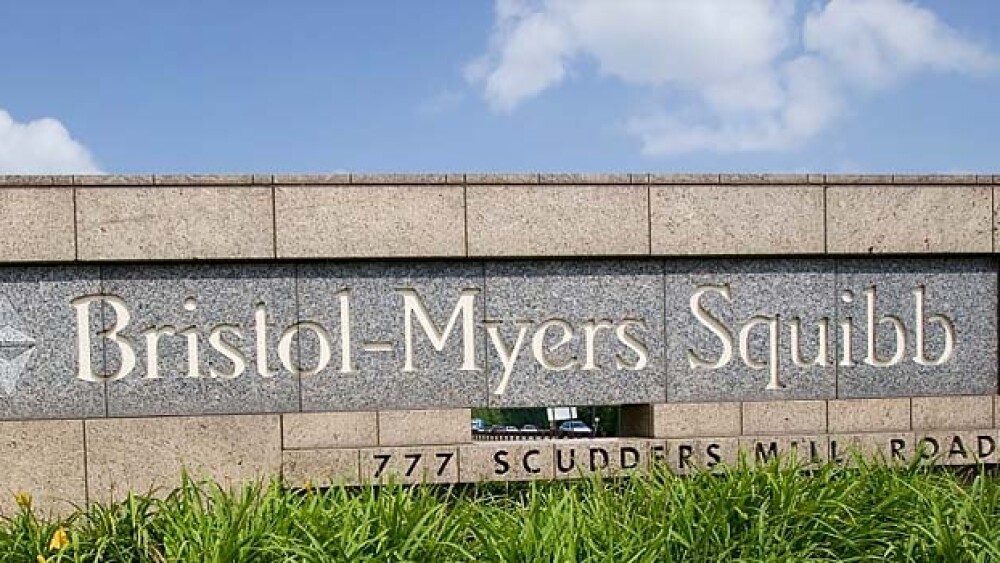The U.S. Food and Drug Administration (FDA) accepted Bristol-Myers Squibb’s supplemental Biologics License Application (sBLA) for Opdivo (nivolumab) with Yervoy (ipilimumab) for a type of colorectal cancer.
The U.S. Food and Drug Administration (FDA) accepted Bristol-Myers Squibb’s supplemental Biologics License Application (sBLA) for Opdivo (nivolumab) with Yervoy (ipilimumab) for a type of colorectal cancer.
Both Opdivo and Yervoy are Bristol-Myers Squibb drugs. The biologics license is for the drug combination for adults with microsatellite instability-high (MSI-H) or mismatch repair deficient (dMMR) metastatic colorectal cancer (mCRC) that has progressed after treatment with fluoropyrimidine, oxaliplatin, and irinotecan.
In February, the agency granted the combination Breakthrough Therapy Designation for this indication. The action date for the FDA is July 10, 2018.
“The FDA acceptance of this application with priority review reinforces our belief in the potential of the Opdivo plus Yervoy combination to treat patients with previously treated metastatic colorectal cancer defined by MSI-H or dMMR biomarkers, and is a result of our longstanding commitment to the exploration of I-O/I-O combinations for patient populations with high unmet need,” said Ian Waxman, Bristol-Myers’ development lead, Gastrointestinal Cancers, in a statement. “We look forward to working with the FDA with the goal of bringing this combination to these colorectal cancer patients.”
Colorectal cancer is the third most common cancer. DNA mismatch repair deficiency takes place when the proteins that repair DNA mismatch errors are missing or don’t work properly. This leads to microsatellite instability-high tumors. About 15 percent of colorectal cancer patients and 4 to 5 percent of metastatic colorectal patients have MSI-H or dMMR biomarkers. These patients are less likely to respond to conventional chemotherapy and have a poor prognosis.
In related news, the Committee for Medicinal Products for Human Use (CHMP) of the European Medicines Agency (EMA) recommended a dosing schedule for Opdivo for advanced melanoma and previously treated renal cell carcinoma. The dosing schedule if 480 mg infused over 60 minutes every four weeks. They committee also recommended approval of a two-week Opdivo dosing option of 240 mg infused over 30 minutes instead of a weight-based dosing for all six approved monotherapy indications in the European Union. The European Commission (EC) will review the recommendation.
“BMS is committed to improving cancer care by, among other things, addressing scheduling and convenience concerns with patients with a range of dosing options for an Immuno-Oncology agent that allows for enhanced flexibility,” said Fouad Namouni, head of development, Oncology, for Bristol-Myers Squibb, in a statement. “This positive CHMP opinion reinforces our commitment and we look forward to hearing from the European Commission. Once approved, the Opdivo four-week dosing infused over 60 minutes would enable BMS to deliver on our promise to explore potentially more flexible and convenient dosing options for patients, caregivers and healthcare providers alike.”
Opdivo was the first programmed cell death-1 (PD1) immune checkpoint inhibitor to be approved in the world, occurring in July 2014. It is now approved in more than 60 countries. The Opdivo-Yervoy combo was approved in October 2015, the first immuno-oncology combo to receive regulatory approval for metastatic melanoma and is currently approved in more than 50 countries. Its major competitor is Merck & Co.’s Keytruda (pembrolizumab).





